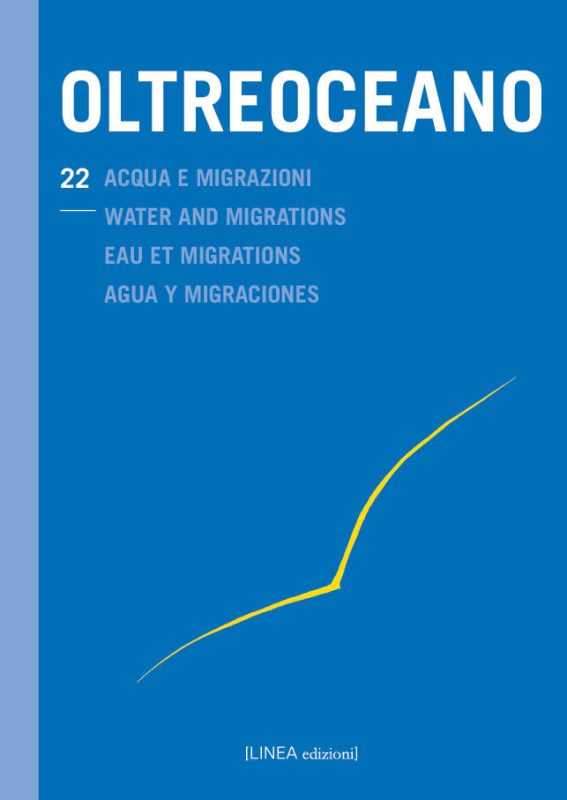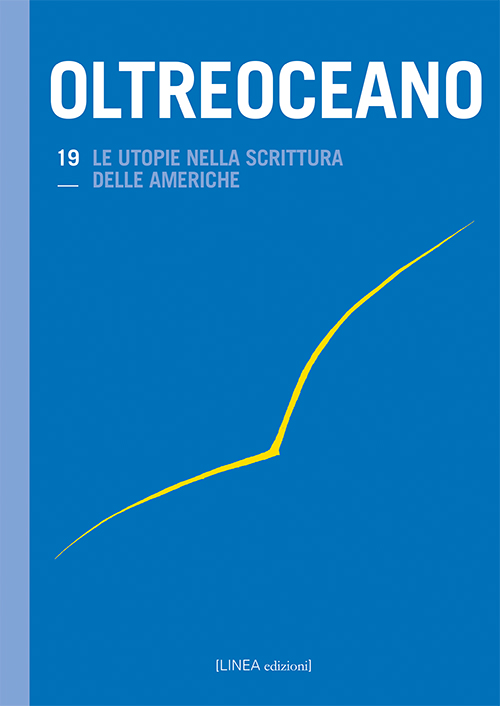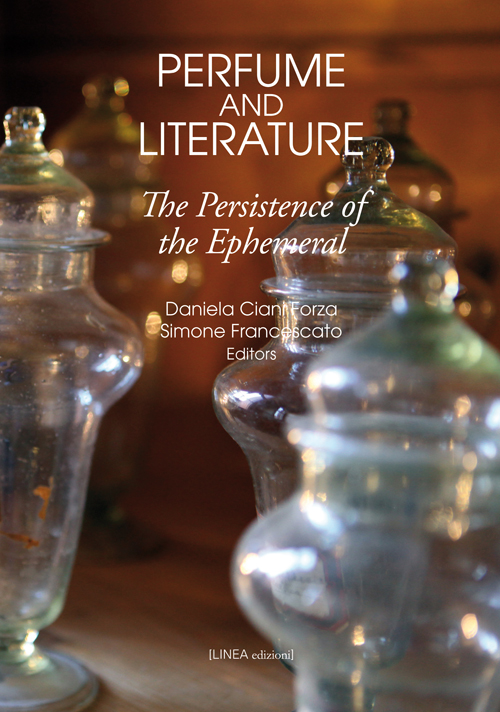OLTREOCEANO 22. ACQUA E MIGRAZIONI
Editorial: Silvana Serafin, “El agua como lágrimas vitales” en los textos de las migraciones de ultramar. Anglophone Literatures and America: Manlio Della Marca, Scene di acqua nella letteratura del Rinascimento americano: il Maelström di Poe e il lago di Thoreau - Joseph Pivato, North Atlantic: The Most Dangerous Water in the World - Francesca Razzi, “A royal holiday beyond the broad ocean”: Visual Humor and Parodic Reflections in Mark Twain’s The Innocents Abroad - Deborah Saidero, “Water is Life”: Indigenous Views on Water and Women - Chiara Patrizi, Reclaiming the Abyss, Reckoning with Time: Water in the Afrofuturist Imagination. Francophone Literatures and America: Alessandra Ferraro, Conversation “en archipel” avec Maylis de Kerangal - Élisabeth Nardout-Lafarge, Israël et l’Amérique française. Sur deux tropismes dans l’oeuvre de Réjean Ducharme - Alessandro Pontelli, Naufrages, tempêtes et pleurs: la vision dysphorique de la foi chez Catherine de Saint-Augustin - Elena Ravera, L’océan comme pont et frontière entre Afrique et Europe: Le Ventre de l’Atlantique de Fatou Diome - Adelaide Pagani, Les eaux hantées du Congo dans Lumières de Pointe-Noire (2013) et Petit Piment (2015) d’Alain Mabanckou - Andrea D’Urso, Polisemie ermetiche dell’acquatico negli oniro-iconopoemi dei surrealisti Benoît e Bounoure. Hispanophone Literatures and America: Domenico Antonio Cusato, El mar como muerte y como libertad. A propósito de El mundo alucinante de Reinaldo Arenas - Maria Gabriella Dionisi, L’acqua in Paraguay: tra vita, morte e possibile rinascita - Ilaria Magnani, Vita e morte lungo le vie d’acqua - Margherita Cannavacciuolo, Figuras del cautiverio: agua e inercia en Mugre rosa de Fernanda Trías – Karín Chirinos Bravo, Contracorriente, Mediterráneo y naufragio según Lina Prosa: traducir para performar nuevos imaginarios colectivos - Rocío Luque, El núcleo “agua” en la fraseología del español de América.
Altre informazioni →OLTREOCEANO 19 LE UTOPIE NELLA SCRITTURA DELLE AMERICHE
Editoriale: Utopie come costruzione di mondi possibili. Canada: Louise Dupré, Écrire les femmes que je suis - Valeria Sperti, L’altérité, l’écart et l’entre: François Jullien et l’utopie autotraductive de Nancy Huston - Nicholas Serruys, Expansion ou rétrécissement des espaces intérieurs dans “Cogito” d’Élisabeth Vonarburg - Nicole Nolette, Quelques futurités du traduire dans les fictions théâtrales franco-canadiennes - Sylvie Vignes, Aude, la dystopie détournée et retournée - Angela Buono, Le Cercle et la Terre dans l’imaginaire des Amérindiens du Québec: topos ou utopie écologique? - Deborah Saidero, Utopias of Self in Imaginary Homelands. Stati Uniti: Gregory Dowling, “Earth’s the Right Place for Love”. Robert Frost and Utopia - Nicola Paladin, Fascism, Populism, and the Myth of the American Revolution in 20th Century US Literature - Cristina Di Maio, Mapping Ludotopias in Italian American Women’s Writing - Chiara Patrizi, American Dreams and Black Identity in the New African Diaspora: Chimamanda Ngozie Adichie’s Americanah and Yaa Gyasi’s Homegoing - Gigliola Nocera, The Underground Railroad di Colson Whitehead. Una fuga dalla schiavitù tra utopia e pulp fiction - Angela Santese, “Energy too Cheap to Meter”. L’utopia dell’energia nucleare negli Stati Uniti - Rosella Mamoli Zorzi, La distopia nel paese delle utopie: finisce l’era di Trump. Ispano America: Rocío Luque, La formación morfológica y léxico-semántica como integración del español de Honduras en el diccionario académico: ¿realidad o utopía? - María del Carmen Domínguez Gutiérrez, La utopía vanguardista de los estridentistas: el Café de Nadie - Sagrario del Río Zamudio, Lengua y utopía en Gioconda Belli: Waslala - Fernanda Elisa Bravo Herrera, Modalidades e inscripciones de la utopía en el imaginario alrededor de la “e(in)migración” italiana en Argentina - Camilla Spaliviero, Dino Campana in Sudamerica: Questo viaggio chiamavamo amore di Laura Pariani - Alice Favaro, La resta de Alia Trabucco Zerán y (la devolución de) los cuerpos: un viaje metafórico y distópico.
PERFUME AND LITERATURE The Persistence of the Ephemeral
How can you describe a perfume? How can you put into words a presence that is fleeting but intense, embodied in an evanescent fragrance?
This volume analyses the relations between writing and olfactive sensations as eloquent signs of world cultures, of the diverse sensitivity with which we each interpret its nuances. As regards their style, content, and approach to the subject, the essays in this collection offer a kaleidoscopic overview of a ‘literary-olfactive’ universe that ranges from Antiquity, Renaissance culture, Symbolism, and the fin de siècle Decadent Movement up to post- modern world-shaking literary phenomena.
The aim of this collection is to enrich the extensive bibliography on the precious art of perfumery or the history of essences and perfumes, with studies expanded in an original way to the literary field. It does not limit itself to offering enlightened insights into works and authors – some of whom are very well known, whilst others deserve to be rediscovered in a new light. Above all it offers an innovative and idiosyncratic interpretation of what a study of perfume in literature actually means, with a selection of contributions that explore an intricate, diversified thematic itinerary with both curiosity and eclecticism.



